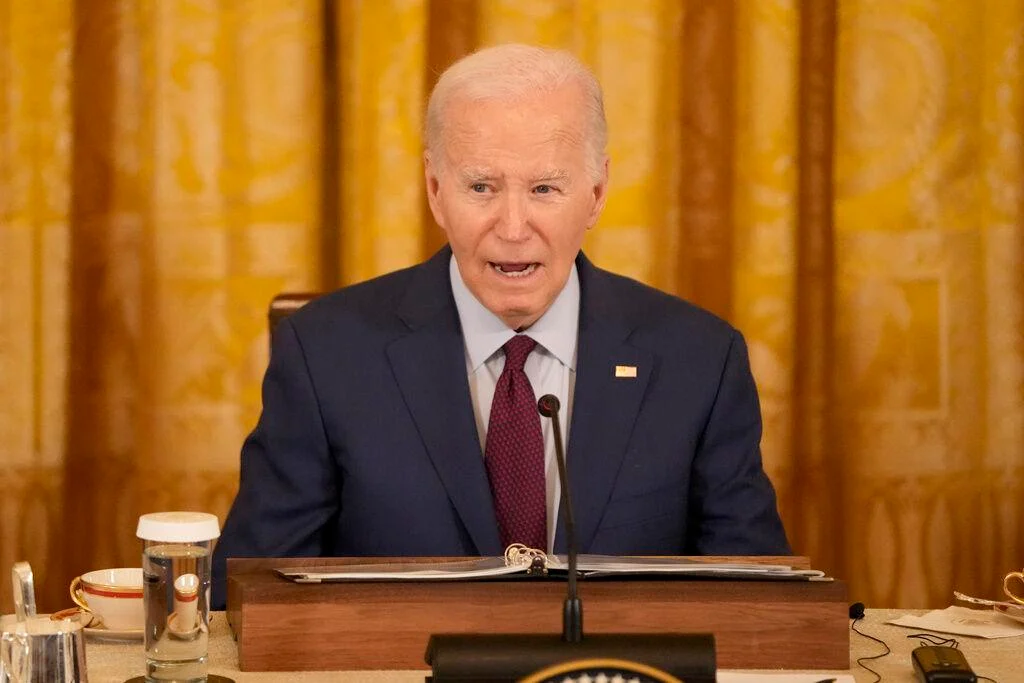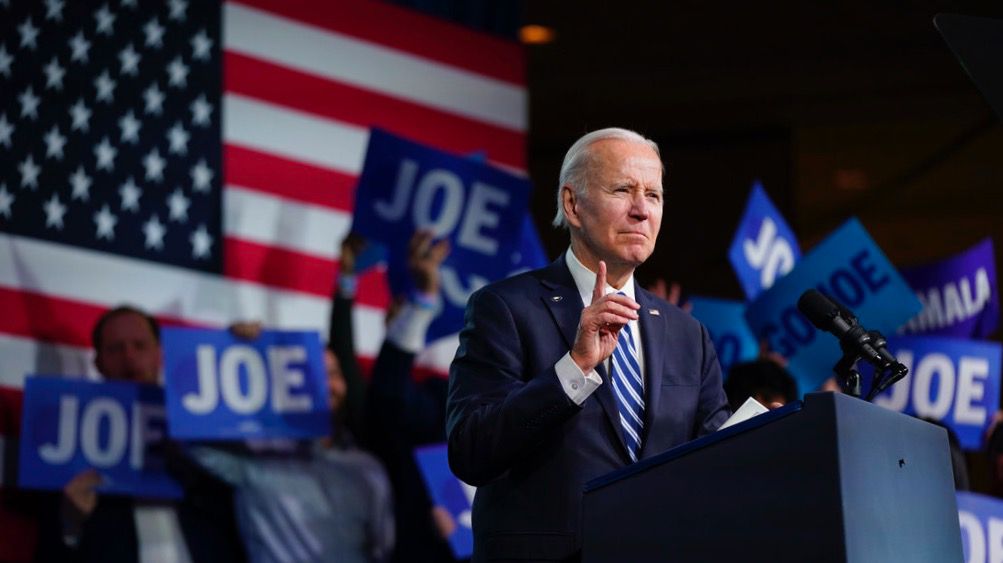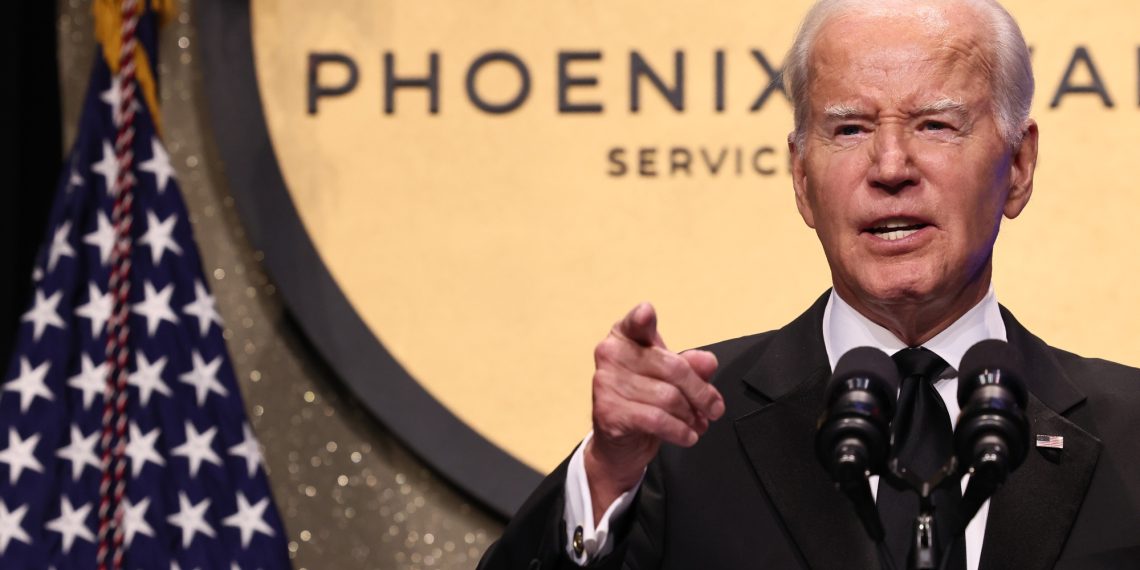In a speech at Reverend Al Sharpton’s racial justice conference, President Joe Biden highlighted his administration’s efforts to address the persistent racial wealth gap in the United States.
Biden emphasized the contrast between his policies and Republican initiatives, which sought to reduce funding for racial equity programs, state-provided health insurance, and social security.
Biden cited significant progress, noting a 60% increase in Black wealth and the most substantial closure of the racial wealth gap in 20 years. However, he acknowledged that more work remains to be done to achieve comprehensive change.

The President expressed concern about the challenges facing Black Americans and other communities of color, including voter suppression, election subversion, threats to reproductive rights, and political violence.
He condemned extremist voices seeking to obstruct progress and erase the strides made towards racial equality.
The White House highlighted recent data from the Federal Housing Finance Agency, revealing a 40% reduction in the gap between home appraisals in majority white communities and communities of color.
This improvement followed measures taken to address appraisal bias, although home appraisals represent only one aspect of the broader wealth gap influenced by various federal and local policies.
Despite efforts, disparities persist, with a New York Fed study indicating that the inflation-adjusted wealth of white households grew faster than that of Black and Hispanic households in recent years.

Biden’s support among Black Americans, while significant in the 2020 election, has faced challenges, with a considerable portion expressing disapproval of his performance in a recent poll.
Biden announced record federal contracting funds for small disadvantaged businesses, approaching his target of allocating 15% of contracts to such enterprises by 2025.
White House economists believe that addressing disparities in business ownership rates will contribute to narrowing the racial wealth gap.





